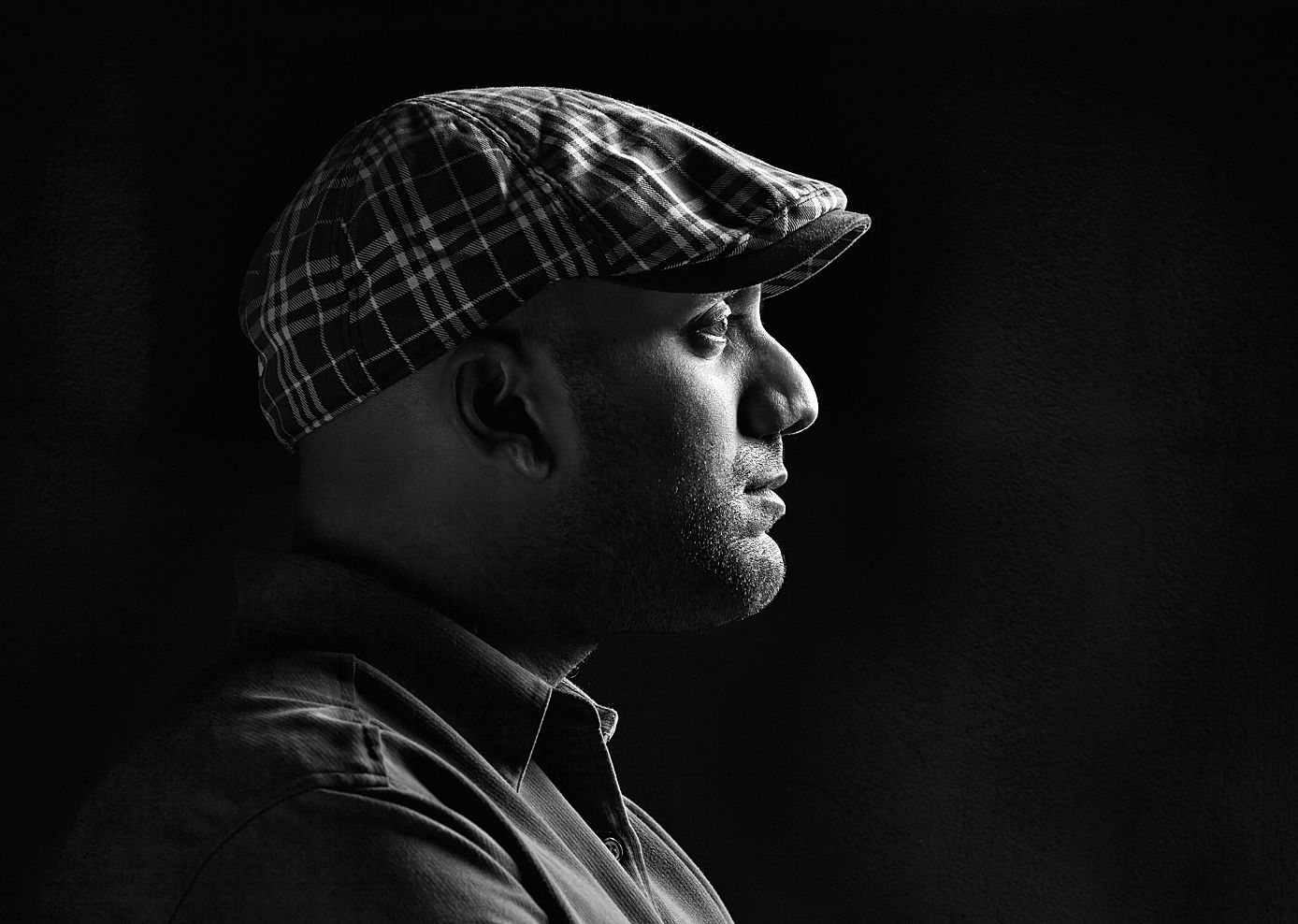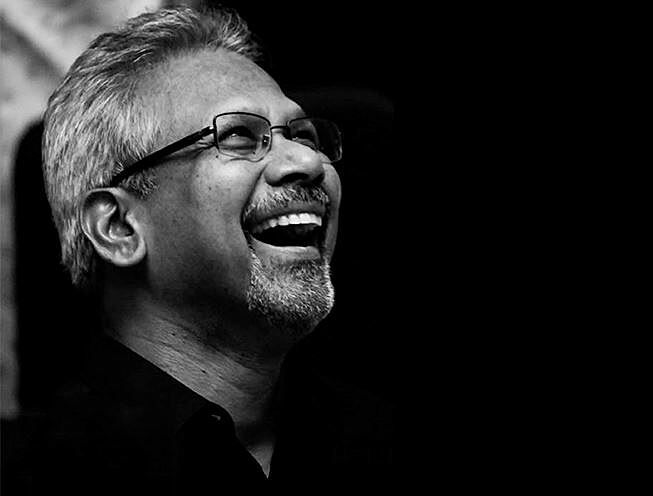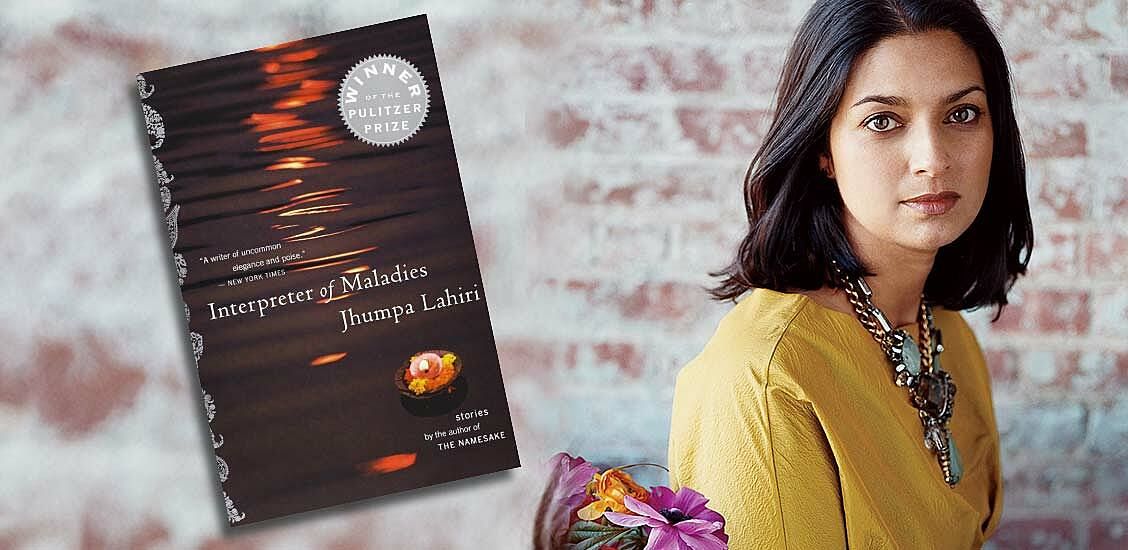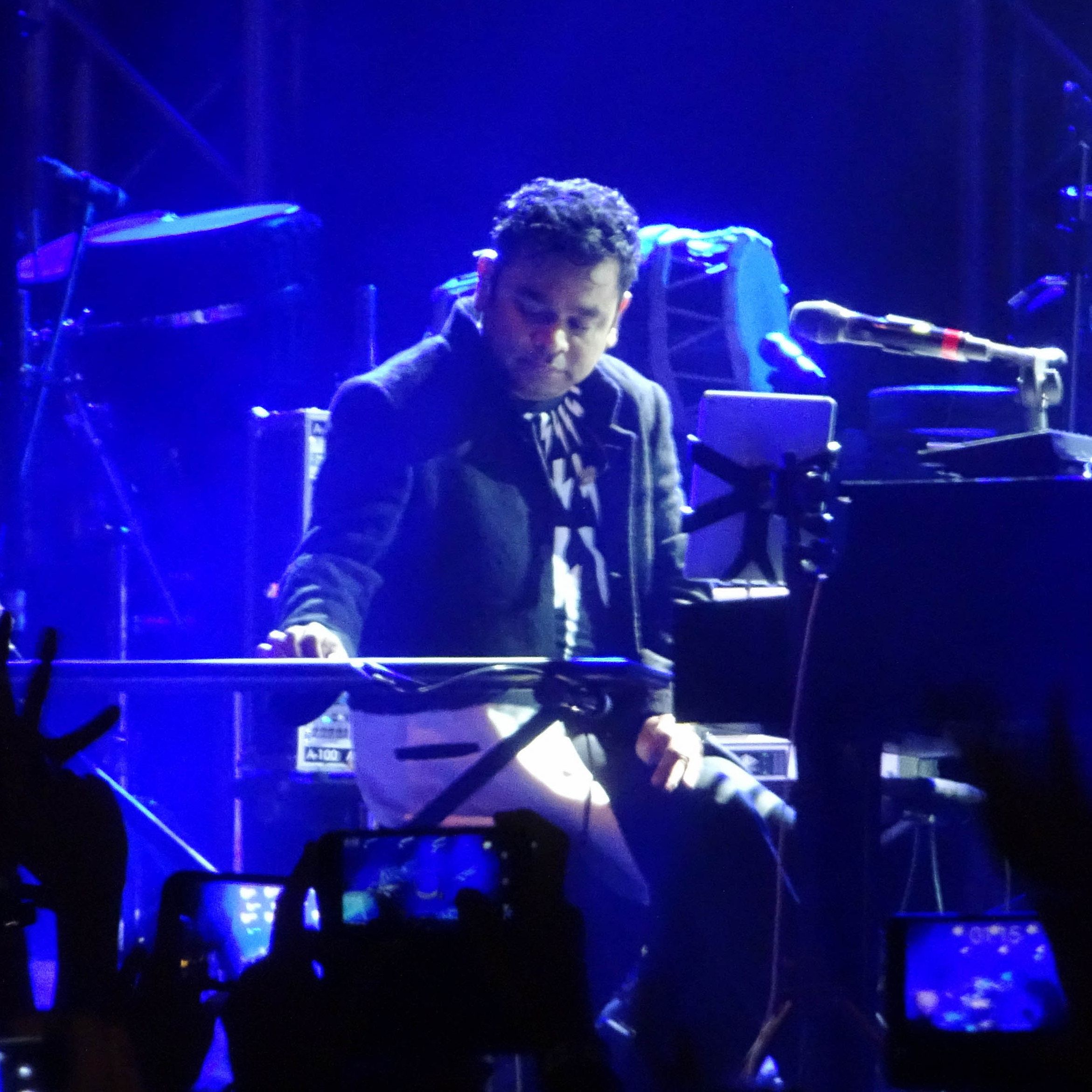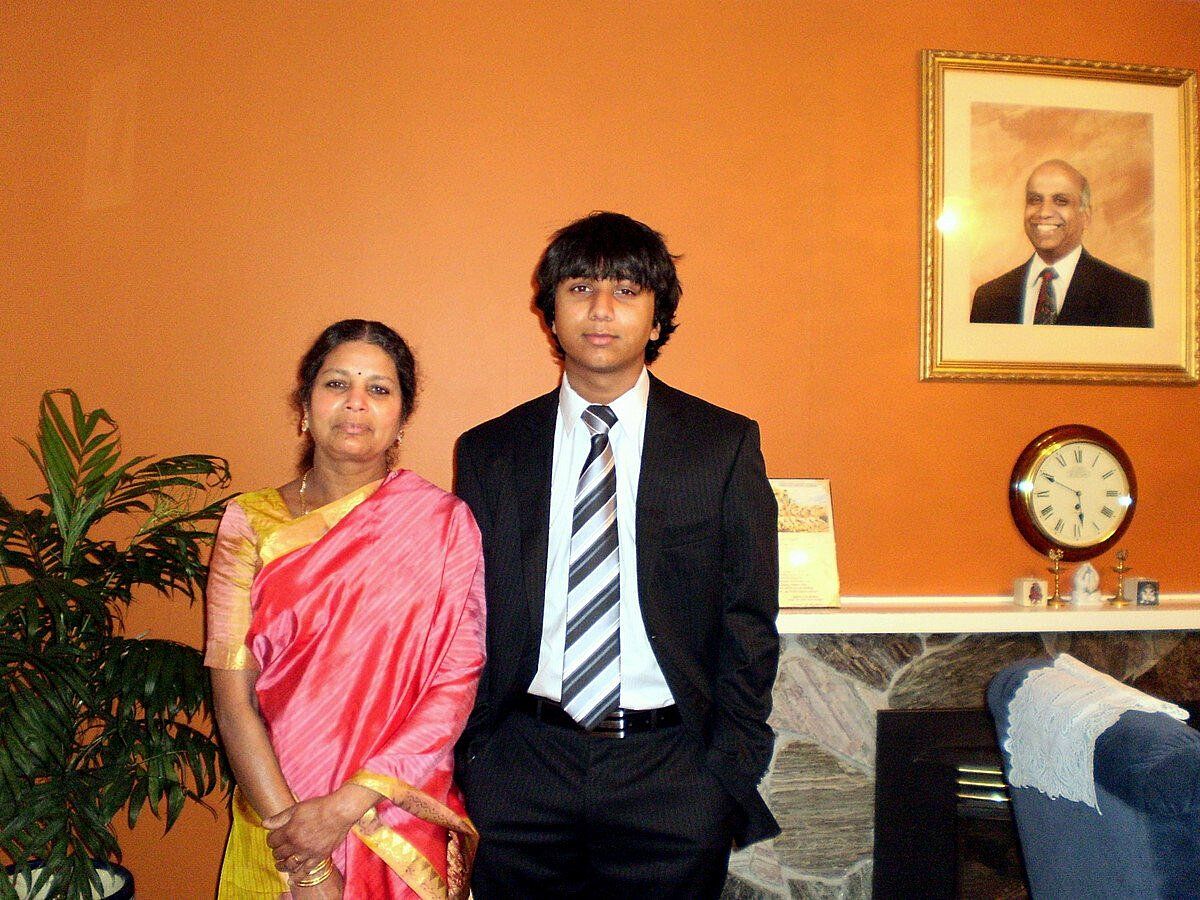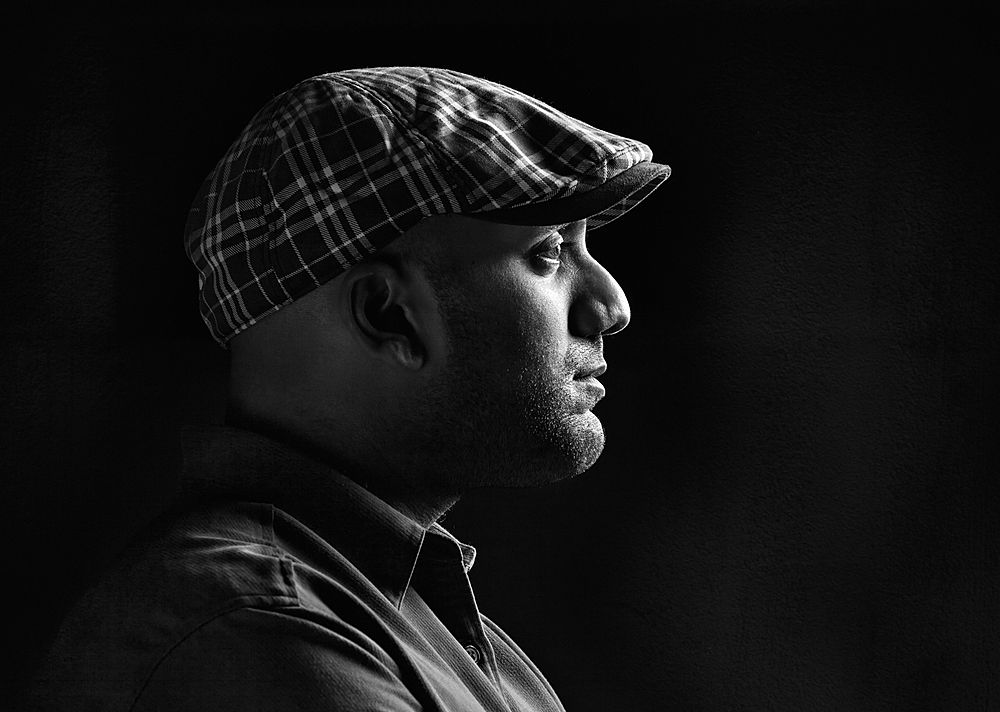Loose Canons: Ahi Karunaharan
Loose Canons is a series in which we invite artists we love to share five things that have informed their work.
Loose Canons is a series in which we invite artists we love to share five things that have informed their work. Meet the rest of our Loose Canons here.
Ahi Karunaharan is an actor, writer, director, producer, composer. A graduate of Victoria University of Wellington and Toi Whakaari: New Zealand Drama School, Ahi is the founder of Agaram Productions, which curated and produced the first ever South Asian Writers Festival including his play – the first Sri Lankan full-length work in New Zealand – The Mourning After.
Ahi has directed the critically-acclaimed production of A Fine Balance for Prayas Theatre, Should Woulda Coulda for Auckland Theatre Company, and Samaroh - The Great Indian Carnival for Auckland Arts Festival earlier this year. This week Ahi opens the new work he's created and directed with Prayas Theatre, Swabhoomi: Borrowed Earth, which tells the story of Indian settlement in New Zealand.
Mani Ratnam’s Nayagan
Mani Ratnam is one of the few Mindie (mainstream + indie) filmmakers who has managed that fine balance of catering to populist, accessible entertainment and marrying it with subtle, nuanced storytelling.
One of the first movies I saw by him was Nayagan. I watched it with my uncle in Sri Lanka almost 30 years ago (when I think about it now, I was way too young to see it in the first place). An early, defining work in his career, it tells the Godfather-like tale of a young boy who embraces a life of crime after his father is killed by the police. He has trouble juggling his family life with his life-and-death mob 'family'. The film was selected as one of the 100 films of all time by Time magazine.
Images and moments from that film still inform my work. The striking memory from that cinematic experience was how easefully Mani Ratnam blends melodrama and music, violence and comedy, realism and delirium, into a two-and-a-half-hour experience, but more importantly how he dared to push boundaries creatively and technically. As a director he was able to present challenging content and forge a new direction in storytelling in Tamil cinema.
Jhumpha Lahiri
That's the thing about books. They let you travel without moving your feet.
– Jhumpa Lahiri, The Namesake
I discovered Jhumpa Lahiri’s Pulitzer prize-winning selection of short stories The Interpreter of Maladies on the bookshelf of a good friend during my second year of drama school. I don’t know what made me pick that book up from Shona’s extensive collection of books on that rainy day. Perhaps I was procrastinating (I do a lot of reading when I have looming deadlines). I do however remember that I read the whole thing when I got home that night and re-read it all over again the next day.
Among a pool of authors, there is one thing that sets Jhumpa Lahiri proudly apart. Her works have a central theme: families. Family get-togethers, the departures, immigration, death, and estrangement. I was instantly able to identify my family stories with hers which I hadn’t experienced with any other works I had read before. She paints a character’s picture so meticulously; she has a mastery of detail. Her follow up works Unaccustomed Earth and The Namesake all proudly sit next to me in my bedroom, and images, phrases and ideas creep up in some form or another in my own writing.
A.R. Rahman
A.R. Rahman effectively discarded the templatized music of the 1980s with his debut soundtrack for the film Roja. It was a breakout album that redefined Indian film music. Many other composers had done this in the past, but Rahman was the composer that I got to discover and experience in my lifetime.
As a composer he does not operate with any safety net. Every song he creates pushes and breaks boundaries. His works range from intimate rural drama Kizhakku Cheemaiyile to fully blown Andrew Lloyd Webber Broadway musical Bombay Dreams. Every audio device that I have owned in my life has been christened by the music of A.R. Rahman; in 1992 I listened to Uzhavan on my Walkman, in 1996 it was Love Birds on my Discman, in 1999 it was Mudhalvan on my mini-disc player, in 2000 I downloaded my first Mp3 from Kandukondain Kandukondain and in 2005 I listened to Boys on my iPod.
The Amigos
Not to be confused with the Mariachi folk band, these Amigos are my source of inspiration, my comrades, my voice of reason, my creative collaborators and closest friends that I have met over the years and I’m truly lucky and grateful as an artist to have them in my life.
This creative mob of a whānau began at Victoria University's Studio 77 in our ‘Space, Light and Text’ class with tutor John Downie, and over the years has travelled through Toi Whakaari: New Zealand Drama School, Tawata Productions, The Untouchable Collective, Agaram Productions, I Ken So Productions and has gathered at Island Bay, George Street, Eva Dixon Street, Wallace Street, Khandallah, cafes, parks, bars, and waterfronts, where we think and dream big. It’s the one place place that I can truly articulate my thoughts, share my ideas, be called out on stuff, agree to disagree, discover new artists, share new works and nourish my heart and soul. Above is an image of one of our hangout spots.
These Amigos are darn talented. They make me up my game, walk the talk and continue to keep me developing. Each of their contribution has in some way or form made it in to my own work.
To name them would be sacrilegious to our unspoken Amigo code, but to not acknowledge them as a massive source of inspiration would be unforgivable.
Amma, Appa, Jana and my family
Everything I'm able to do is because of my family. They are my source of inspiration.
As a South Asian man (not that this should be an excuse), we often struggle to talk openly about our feelings in the way that I see westerners do so freely. I envy that. It is through my art that I find ways to communicate to them and to everyone else. Hidden amongst my family is a world of incredible adventures, heartbreak, disappointments, betrayal, grief, cheeky encounters, and anecdotes that I have been putting into my work and collecting and saving for future work.
When the civil war broke out in our homeland, we were all forced to leave our homes, and our family was fractured, just like the many other Tamil migrants. Like broken china, pieces of our whānau are now spread all over the globe, coming together for the odd occasional family celebration when time and finances permit.
But if it wasn’t for my family, I wouldn’t be able to do all of this. My father held my hand and took me to piano lessons. He bought a piano and hired a cello for me even before buying a car for the family. My mother worked for long hours on her feet so that the home fires could keep burning and so that I could go to drama school to pursue a dream when she was still grieving the loss of her husband. There's my brother Janakan, whose cricket games and practices I missed because I was rehearsing for yet another show. There's my uncles who continued to pursue their creative endeavours and create platforms and opportunities for me develop and grow as an artist, and my aunties and my wonderful cousins for holding, inspiring, fuelling and reminding me of how friggin lucky I am.
Swabhoomi: Borrowed Earth runs from Thursday 25 May – Sunday 4 June at TAPAC. Tickets available here.
